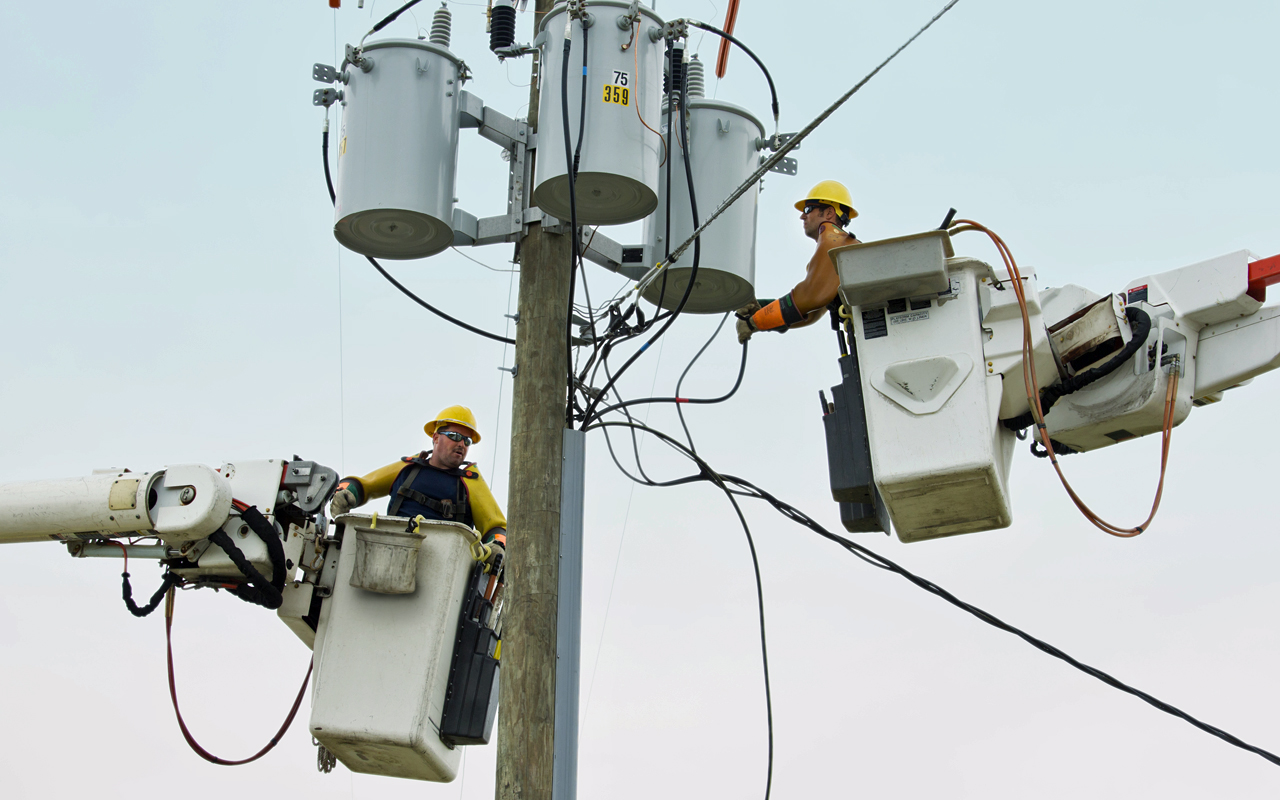9 High-Yield Dividend Stocks to Buy on the Dip
The market has experienced a meaningful rotation in recent months thanks to a combination of accelerating economic growth, corporate tax cuts and rising interest rates.


Profit and prosper with the best of Kiplinger's advice on investing, taxes, retirement, personal finance and much more. Delivered daily. Enter your email in the box and click Sign Me Up.
You are now subscribed
Your newsletter sign-up was successful
Want to add more newsletters?

Delivered daily
Kiplinger Today
Profit and prosper with the best of Kiplinger's advice on investing, taxes, retirement, personal finance and much more delivered daily. Smart money moves start here.

Sent five days a week
Kiplinger A Step Ahead
Get practical help to make better financial decisions in your everyday life, from spending to savings on top deals.

Delivered daily
Kiplinger Closing Bell
Get today's biggest financial and investing headlines delivered to your inbox every day the U.S. stock market is open.

Sent twice a week
Kiplinger Adviser Intel
Financial pros across the country share best practices and fresh tactics to preserve and grow your wealth.

Delivered weekly
Kiplinger Tax Tips
Trim your federal and state tax bills with practical tax-planning and tax-cutting strategies.

Sent twice a week
Kiplinger Retirement Tips
Your twice-a-week guide to planning and enjoying a financially secure and richly rewarding retirement

Sent bimonthly.
Kiplinger Adviser Angle
Insights for advisers, wealth managers and other financial professionals.

Sent twice a week
Kiplinger Investing Weekly
Your twice-a-week roundup of promising stocks, funds, companies and industries you should consider, ones you should avoid, and why.

Sent weekly for six weeks
Kiplinger Invest for Retirement
Your step-by-step six-part series on how to invest for retirement, from devising a successful strategy to exactly which investments to choose.
The market has experienced a meaningful rotation in recent months thanks to a combination of accelerating economic growth, corporate tax cuts and rising interest rates. The Standard & Poor’s 500-stock index has quickly returned more than 7% since Dec. 1, 2017. However, many high-yield dividend stocks have trailed. The Vanguard REIT ETF (VNQ) and the Utilities Select Sector SPDR Fund (XLU) have actually lost more 6% and 10%, respectively.
Many defensive stocks that pay generous dividends have simply been left in the dust, and several have declined to a point where they could be attractive for long-term income investors.
Take the nine high-yield stocks we’re about to discuss, for instance. Shares of these businesses have all lost between 8% and 15% since the start of December, underperforming the S&P 500 by at least 15 percentage points in roughly two months. However, each company now yields between 3% and 7%, appears to have a timely valuation based on yield, has increased its payout for at least five straight years and possesses a solid Dividend Safety Score – a metric calculated by Simply Safe Dividends to gauge how secure a company’s dividend looks.
In other words, these nine high-yield stocks appear to be priced to buy on this current dip.
Data is as of Jan. 29, 2018. Dividend yields are calculated by annualizing the most recent quarterly payout and dividing by the share price. Companies are listed alphabetically. Click on ticker-symbol links in each slide for current share prices and more.

Duke Energy
- Dividend yield: 4.6%
- 5-year average yield: 4.3%
- Duke Energy (DUK, $77.29) is one of the largest regulated utilities in America, serving 7.5 million electric customers and 1.6 million gas customers across the Southeast and Midwest.
Duke Energy’s profitability and growth are primarily determined by state regulators and the demographics of the regions it serves because it’s a regulated utility. Fortunately, the company has enjoyed at least 1% annual growth in the number of customers it has served over the last four years, which actually is decent for a utility stock. Even better, Duke’s allowed returns on equity have consistently sat between 9% and 12% in each of its regions.
The rates charged to companies by Duke’s electric utilities also are meaningfully below the nationwide average, suggesting the company should have an easier time maintaining or even increasing its rates in the future as it executes on its growth projects.
Management targets 4% to 6% annual dividend growth through 2021 and maintains a very healthy payout ratio between 70% and 75%, which provides an added layer of security. Investors also can take comfort in the fact that Duke has paid regular quarterly dividends for 91 consecutive years, underscoring the resiliency of its business.
Despite Duke’s dependable dividends and outlook for decent earnings and payout growth over the next few years, its stock price has trailed the market by nearly 20 percentage points since the start of December 2017. That has pushed DUK’s yield up to 4.6% – above the stock’s five-year average, making it a top high-dividend stock to consider at the moment.

Federal Realty Investment Trust
- Dividend yield: 3.3%
- 5-year average yield: 2.7%
- Federal Realty Investment Trust (FRT, $121.13) was founded in 1962, making it one of the oldest public real estate investment trusts (REITs) in the country. However, the company is perhaps best known for its incredible dividend track record.
FRT has not only paid uninterrupted dividends since 1962, but it has raised its dividend for 50 consecutive years. That’s the longest dividend growth streak of any REIT, and puts it in a rare group of 13 other Dividend Aristocrats with streaks of 50 years or longer.
Federal Realty focuses on shopping centers located in large, highly affluent markets and anchored by grocery stores, which provide consistent foot traffic. The retail space is undoubtedly experience meaningful change today as consumers shopping habits evolve. However, Federal Realty’s business appears to remain well-positioned.
“Quality has been the focus of Federal Realty, and we view its portfolio as one of the best in the business,” Morningstar equity analyst Brad Schwer recently wrote. “The company’s ability to push same-store growth approximately 4% annually over the past decade is a leading example of quality and resistance to the increasingly publicized shift to e-commerce.”
FRT shares have been driven down 9% in the past two months despite the company’s strengths, secure payout and ability to drive moderate growth going forward. The upside for new money? That has driven Federal Realty's yield to 3.3%, which is well above its five-year average.

Iron Mountain
- Dividend yield: 6.9%
- 5-year average yield: 5.3%
- Iron Mountain (IRM, $34.08) provides several mission-critical services focused on information storage needs – records management, data protection and shredding, among others – to business and government organizations.
The company’ storage business has proven to be a predictable source of cash flow over the years given its recurring nature and switching costs. In fact, Iron Mountain notes that 50% of boxes stored in its facilities 15 years ago remain there today, and CFRA equity analyst Kenneth Leon believes annual tenant retention remained north of 90% in 2016 and 2017.
While it’s true that physical information is increasingly going digital, the company continues adapting by offering its own cloud solution to help with data archiving, document management solutions and consulting services to help customers with the transition.
To further adapt, management also expects revenue from faster-growing emerging markets and adjacent businesses to approach 30% of overall mix by 2020, compared to 20% in 2016. Leon wrote that “most of IRM’s acquisitions in emerging markets have been accretive where IRM can leverage its global footprint and customer relationships.”
Thanks to Iron Mountain’s scale, push into faster-growing markets, and opportunities for consolidation in the fragmented North American storage market, management expects to deliver at least 4% annual dividend growth going forward. The company’s combination of generous yield and moderate payout growth make it an attractive income opportunity.

Kimco Realty
- Dividend yield: 7.0%
- 5-year average yield: 4.0%
- Kimco Realty (KIM, $15.93) was founded in 1958 and owns more than 500 properties concentrated in major metropolitan markets across the country. The company is a retail REIT, but it has taken several strategic actions to avoid the worst of the brick-and-mortar slump.
Kimco has disposed of $6 billion in assets since 2010 and diversified its portfolio so that no tenant accounts for more than 4% of its annual rent. Even better, more than half of rent from its top 50 tenants is from those with investment-grade credit ratings, making them more reliable rent payers. More than 90% of its rent also comes from internet-resistant or omnichannel players, which are less vulnerable to the e-commerce threat.
The company’s portfolio occupancy also remains strong, above 95%, and Kimco’s rent per square foot continues climbing. While the future always can change, Kimco’s business appears to remain on stable ground today and enjoys an investment-grade credit rating as well.
While Kimco’s future growth is unlikely to light the world on fire, its generous yield of 7% provides solid income and appears to remain safe for now. In November 2017, Argus analyst Jacob Kilstein, CFA, wrote that “the dividend is secure given a forecast FFO payout ratio in the high 60% range.”

Public Storage
- Dividend yield: 4.2%
- 5-year average yield: 3.3%
As the world’s largest owner and operator of self-storage facilities with more than 1 million customers, Public Storage (PSA, $192.54) enjoys several advantages.
Kilstein writes: “The company benefits from economies of scale (it is by far the largest storage company), strong brand recognition, and assets in locations with high barriers to entry.”
Public Storage is a rather unique REIT in that its business model is better protected against inflation because it can continually raise rents, as customers typically sign month-to-month leases. As a result, it could be less sensitive to rising interest rates, which typically accompany higher rates of inflation.
Self-storage is also appealing because warehouses don’t require much in the way of maintenance expenses compared to other types of properties, such as office buildings and apartments. Furthermore, switching storage providers is a real pain for consumers – no one enjoys moving boxes.
As a result, Public Storage has paid uninterrupted dividends for more than 25 years and increased its dividend each year since 2010. While It’s true that industry supply concerns have weighed on the stock over the past year, Public Storage’s prime locations and scale position it well to get through any headwinds. Kilstein also notes that he “expects the company to benefit from acquisitions and development projects amid sector consolidation. We also look for demand to increase as millennials start families and buy homes.”

Mid-America Apartment Communities
- Dividend yield: 4.0%
- 5-year average yield: 3.9%
- Mid-America Apartment Communities (MAA, $93.25) owns more than 100,000 apartment homes located across the Southeast and Southwest regions of the country, making it one of the largest multi-family real estate investment trusts. Atlanta, Dallas, Charlotte and Tampa are its biggest cities, but the company’s reach spans 37 markets.
Management has made several moves in recent years to strengthen Mid-America’s business, reducing the number of markets it plays in, improving profitability, reducing debt to earn a higher investment-grade credit rating, and developing a younger and higher quality portfolio that can command higher rents.
These actions have also improved the safety of MAA’s dividend. For example, the company’s adjusted funds from operations (AFFO) payout ratio declined from 83.7% in 2007 to about 66% today, providing a greater margin of safety while making future dividend growth easier.
Looking ahead, CFRA’s Leon sees funds from operations (FFO) per share rising from an estimated $5.90 in 2017 to $6.25 in 2018. His outlook “reflects stable occupancy and higher rental rates realized from MAA’s re-development program.”
While oversupply concerns can crop up in some of MAA’s territories, its markets are experiencing job growth rates above the national average, and the company’s improved financial healthy positions it on solid ground.

NorthWestern
- Dividend yield: 3.9%
- 5-year average yield: 3.5%
- NorthWestern (NWE, $53.72) is an electric and natural gas utility serving customers across Montana, South Dakota and Nebraska. And the company appeals to conservative dividend investors for several reasons.
First, all of NorthWestern’s business is regulated, which has provided predictable returns throughout the company’s 100-plus years of operating history. The utility’s residential electric and gas rates also sit below the national average, which presumably results in less regulatory pressure. CFRA equity analyst Christopher Muir sees “strong customer growth driven by favorable service area demographics” as well.
Renewable energy sources are a major focus for Northwestern, too, further differentiating it from many other utilities. Hydro and wind power account for more than half of NorthWestern’s electric supply portfolio today and should provide long-term pricing stability for its customers for many years to come.
Turning to the dividend, management targets a conservative payout ratio between 60% and 70% and has increased NWE’s dividend every year for more than a decade. The company’s dividend gains further security from NorthWestern’s investment-grade credit rating and favorable debt maturity schedule, with no major obligations coming due until 2023.

OGE Energy
- Dividend yield: 4.2%
- 5-year average yield: 3.3%
- OGE Energy (OGE, $31.71) is a regulated utility providing electricity to more than 800,000 retail customers throughout Oklahoma and western Arkansas. The company also has a meaningful ownership stake in Enable Midstream Partners LP (ENBL), a fast-growing master limited partnership focused on natural gas pipelines and storage. ENBL provides a nice source of cash to OGE, which is a 50% general partner.
Despite OGE Energy’s status as a regulated utility, investors should be aware that the company is a little hairier than some of its peers.
Morningstar analyst Charles Fishman, CFA, writes, “A below-average regulatory framework in Oklahoma and a significant investment in a midstream business in a very competitive market drive our no-moat rating despite our view that OGE’s regulated utility for the most part is well-run and its service territory is in a strong economic region.”
Simply put, as with virtually all investment opportunities, there are pros and cons to consider with OGE. But despite its potential drawbacks, OGE has paid uninterrupted dividends for more than 25 years and targets 10% annual dividend growth through 2019, which is one of the strongest rates in the sector.
Despite some concerns about the company’s dependence on the regulatory climate in Oklahoma, Fishman believes “OG&E’s growth rate base and customer growth should result in annual earnings growth over 4%.”

Welltower
- Dividend yield: 5.8%
- 5-year average yield: 4.9%
- Welltower (HCN, $59.52) seems to be one of those companies.
Many companies in the healthcare real estate sector have been plagued with reform uncertainty, oversupply concerns and tighter spending to make the system more efficient. Rising interest rates have further piled on the headwinds and uncertainties facing the space.
However, some companies appear to be much better positioned than others in this industry, which is expected to eventually see a major lift in demand for health services as the population of people 85 years and older doubles during the next 20 years, according to Census estimates.
Welltower was founded in 1970 and is the largest medical REIT in the country by enterprise value. It owns more than 1,300 properties that are involved in various areas of patient care. Senior housing is by far the biggest contributor (70%) to Welltower’s operating income, followed by outpatient medical office buildings and skilled nursing facilities.
Importantly, Welltower has intentionally reduced its dependence on government sources of pay to reduce future risk of changing reimbursement models. The company derives 93% of its revenue from private payer insurance sources today compared to less than 70% in 2010, for example. It also improved its cash flow reliability and tenant diversification by divesting over $4 billion of skilled nursing facilities, which are facing some of the highest pressure.
Welltower maintains an investment-grade balance sheet and has demonstrated its conservatism and ability to adapt to changing market conditions by paying uninterrupted dividends since 1971. This is the type of predictability that appeals to investors living off dividends in retirement.
Profit and prosper with the best of Kiplinger's advice on investing, taxes, retirement, personal finance and much more. Delivered daily. Enter your email in the box and click Sign Me Up.

Brian Bollinger is President of Simply Safe Dividends, a company that provides online tools and research designed to help investors generate safe retirement income from dividend stocks without the high fees associated with many other financial products.
-
 5 Vince Lombardi Quotes Retirees Should Live By
5 Vince Lombardi Quotes Retirees Should Live ByThe iconic football coach's philosophy can help retirees win at the game of life.
-
 The $200,000 Olympic 'Pension' is a Retirement Game-Changer for Team USA
The $200,000 Olympic 'Pension' is a Retirement Game-Changer for Team USAThe donation by financier Ross Stevens is meant to be a "retirement program" for Team USA Olympic and Paralympic athletes.
-
 10 Cheapest Places to Live in Colorado
10 Cheapest Places to Live in ColoradoProperty Tax Looking for a cozy cabin near the slopes? These Colorado counties combine reasonable house prices with the state's lowest property tax bills.
-
 Dow Adds 1,206 Points to Top 50,000: Stock Market Today
Dow Adds 1,206 Points to Top 50,000: Stock Market TodayThe S&P 500 and Nasdaq also had strong finishes to a volatile week, with beaten-down tech stocks outperforming.
-
 Stocks Sink With Alphabet, Bitcoin: Stock Market Today
Stocks Sink With Alphabet, Bitcoin: Stock Market TodayA dismal round of jobs data did little to lift sentiment on Thursday.
-
 Dow Leads in Mixed Session on Amgen Earnings: Stock Market Today
Dow Leads in Mixed Session on Amgen Earnings: Stock Market TodayThe rest of Wall Street struggled as Advanced Micro Devices earnings caused a chip-stock sell-off.
-
 Nasdaq Slides 1.4% on Big Tech Questions: Stock Market Today
Nasdaq Slides 1.4% on Big Tech Questions: Stock Market TodayPalantir Technologies proves at least one publicly traded company can spend a lot of money on AI and make a lot of money on AI.
-
 Fed Vibes Lift Stocks, Dow Up 515 Points: Stock Market Today
Fed Vibes Lift Stocks, Dow Up 515 Points: Stock Market TodayIncoming economic data, including the January jobs report, has been delayed again by another federal government shutdown.
-
 Stocks Close Down as Gold, Silver Spiral: Stock Market Today
Stocks Close Down as Gold, Silver Spiral: Stock Market TodayA "long-overdue correction" temporarily halted a massive rally in gold and silver, while the Dow took a hit from negative reactions to blue-chip earnings.
-
 Nasdaq Drops 172 Points on MSFT AI Spend: Stock Market Today
Nasdaq Drops 172 Points on MSFT AI Spend: Stock Market TodayMicrosoft, Meta Platforms and a mid-cap energy stock have a lot to say about the state of the AI revolution today.
-
 S&P 500 Tops 7,000, Fed Pauses Rate Cuts: Stock Market Today
S&P 500 Tops 7,000, Fed Pauses Rate Cuts: Stock Market TodayInvestors, traders and speculators will probably have to wait until after Jerome Powell steps down for the next Fed rate cut.
